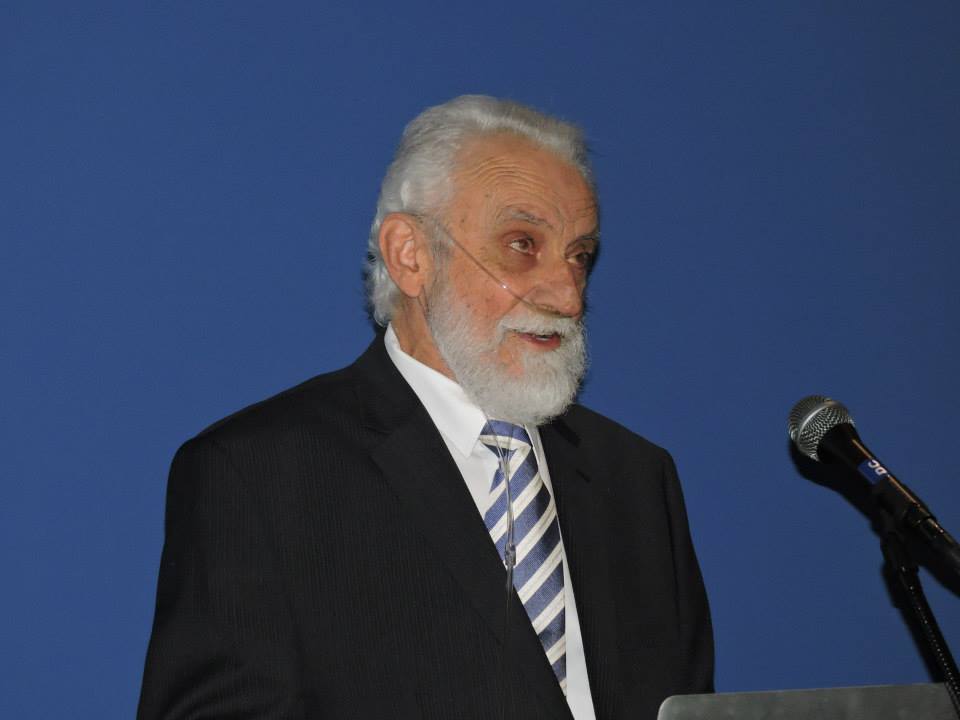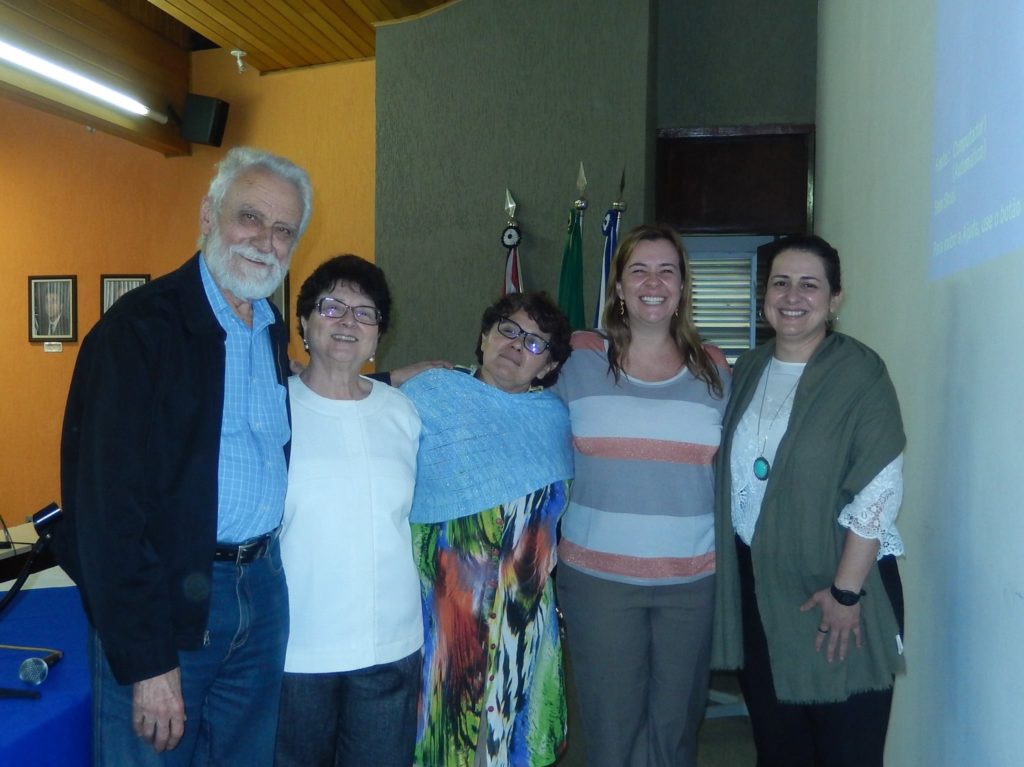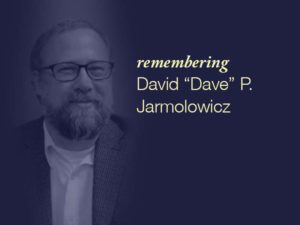Remembering João Claudio Todorov: Goodbye Teacher, Good Old Friend

By Deisy G. de Souza
One of the pioneers of Behavior Analysis in Brazil, João Claudio Todorov passed away in his sleep on July 8, 2021, at his home in Brasilia. I borrowed the title of his article on Fred Keller, published in JEAB (Todorov, 1996), when Keller died. Since I began working at João Claudio lab in 1971, as an undergraduate student, he became forever a respected teacher, a good friend, my “second father,” and he is greatly missed.
Born in 1941, in a small town in the interior of São Paulo, the son of immigrant parents, the paths that led Todorov to the analysis of behavior went through a course taught by Carolina Bori when he was still a psychology student. Shortly after (1961), Keller came to Brazil on a sabbatical visit, which resulted in the formation of the first group of behavior analysts in this country. Carolina Bori was Keller’s assistant and through her, Todorov met “the Kellers” (the inseparable Fred and “Dona” Frances). The Kellers returned in 1964 for a great “joint adventure” led by Carolina Bori, in the creation of the Psychology course at the recently opened Universidade de Brasília (UnB). Todorov was then a master’s student and instructor of the undergraduate course at UnB. Fred Keller encouraged him to pursue a PhD degree at the University of Arizona (Fort Skinner in the desert!), where Keller would work, after Brasília. The subject of his doctoral thesis, supervised by Stanley Pliskoff, emerged from a conversation with a laboratory colleague, Richard Shull, about an article (Shull & Pliskoff, 1967) then in preparation for publication (Todorov, 2021, p.45, Shull, in press).

Back in Brazil (1969), Todorov was hired at the Faculty of Medicine of the University of São Paulo in Ribeirão Preto for four very productive years in terms of teaching and research. Using equipment brought from the United States and housed on loan in the pharmacology laboratory of Dr. Frederico Graeff, Todorov started a research line on avoidance behavior in pigeons that resolved a controversy then under discussion in the area, about the limits of learning. Employing appropriate behavior control techniques, his laboratory demonstrated the feasibility of shaping the key-pecking response to postpone shock (Ferrari, Todorov, & Graeff, 1973), replicated the classic studies of Sidman (1953, 1955) on unsigned avoidance (Todorov, Ferrari, & de Souza, 1973) and on signaled free avoidance (de Moraes & Todorov, 1977), established stimulus control of avoidance behavior under multiple schedules (Gorayeb & Todorov, 1977) and under concurrent schedules of reinforcement (Ferrari & Todorov , 1980). These works involved the scientific training of students at undergraduate (de Souza), master’s (Ferrari; Gorayeb) and doctoral (de Moraes; Ferrari) levels.
In 1973 Todorov returned to the University of Brasília, where he retired in 2000, but continued producing and directing research until a few days before his death, in 2021. In the first years of this new phase at UnB, Todorov carried out some other studies on aversive control, but he devoted himself intensively to the study of choice behavior and to the quantification of behavior and the matching law (the list of references is too extensive for this text; most articles are published in JEAB). Elenice Hanna and Jorge Mendes de Oliveira-Castro stand out as his main collaborators in this line of research.
In the eighties, inspired by the concept of metacontingency (Glenn, 1986), João Claudio established a line of conceptual analysis and experimental investigations on cultural practices, engaging in a strong national and international research network (Malott, in press; Vasconcellos, Malott, Glenn, Andery, & Tourinho, in press) which included the organization of a series of think tank of cultural studies. With his students, Todorov systematically identified and described contingencies and metacontingencies embedded in laws and public policies (for example, on the rights of children and adolescents, on the conditional cash transfer program in Brazil), or involved in real settings, such traffic, public health, reforestation, incarceration. The abstract of one of his recent articles illustrates the type of contribution and its relevance to science and public policy:
Law 11.340/2006 [Brazil], known as Maria da Penha Law, aims to curb and prevent domestic and family violence against women. This study analyzed contingencies present in the Law focusing on its objectives and the role of the family and society in protecting women. Articles of the law were classified as antecedents, behaviors, and consequences and, subsequently, they were analyzed in order to group the different component terms of the contingencies. The Maria da Penha Law represents advances in relation to its objectives of curbing domestic violence against women and providing assistance and protection to victims. Gaps (incomplete contingencies) related to the role of the family and society in preventing violence have been identified, which can favor multiple interpretations and non-compliance with the Law. Although the law, by itself, does not directly change behavior, the formulation of clear and complete statements, in terms of contingency, is one of the variables to be considered in order to favor its effectiveness. In this sense, the present study adds to previous analyzes of other laws, based on the concepts of contingencies and metacontingencies. The specific analysis of a law to protect women contributes to discussions related to gender inequality, which are still scarce in the context of Behavior Analysis. (Todorov et al., 2021).
This brief summary of a research career, however, is insufficient to speak of João Claudio’s enormous influence on behavior analysis, on his students, on the university, and his role in scientific societies and in class organization. He was a man of refined political thought and high sensitivity to social problems. From a very young age he was involved in student organizations and later in teachers’ organizations. At Universidade de Brasília he contributed for more than 15 years to the administration, holding the positions of Dean of Research, Vice-Rector and Rector. In these positions, he led the university to participate in important initiatives that culminated in the establishment of public policies. One example was the use of crosswalks in Brasilia, whose legislation created important contingencies that moderated a traffic that had been proving dangerous and even lethal for pedestrians (Sénéchal-Machado & Todorov, 2008).
For his contributions, he received many awards in Brazil and, also, awards from ABAI (Association for Behavior Analysis International) and SABA (Society for the Advancement of Behavior Analysis), such as the status of ABAI Fellow in 2015, the2009 SABA Award for International Dissemination of Behavior Analysis, and the 2020 SABA Award for Distinguished Service to Behavior Analysis.

It is not easy to express in words the influence that João Cláudio had in the field of behavior analysis throughout his long and illustrious career, with his remarkable achievements in research, education and service. His legacy will continue to influence those who lived and learned from him.
In closing, I would like to talk about the human being behind all these accomplishments, as seen and considered by his students and peers. Many people wrote testimonials for a special section that the Brazilian Journal of Behavior Analysis is preparing to honor Todorov, and the amount and diversity of qualifications that people used to refer to João Claudio reflect, at least in part, the positive, affective effects generated in their interactions with him: remarkable human being, unforgettable man/mentor/master, warm- hearted man, remarkable generosity, inspiring, leader, prolific researcher, scholar, rigorous scientist, unwavering fidelity to the principles of Behavior Analysis, a change driver, a promotor (of students, young talents, colleagues, institutions), a barrier breaker, avant-garde, driven by challenges, committed to making the world a better place, a giant in the field of behavior analysis, dedicated to creating opportunities for others, highly productive, energetic and enthusiastic, with a special ability to hear and respect different voices, open and friendly with students and colleagues…
References
de Moraes, A. B. A., & Todorov, J. C. (1977). Signalled free-operant avoidance of shock by pigeons pecking a key. Journal of the Experimental Analysis of Behavior, 27, 281-292. https://doi.org/10.1901/jeab.1977.27-281
Ferrari, E. A., Todorov, J. C., & Graeff, F. G. (1973). Nondiscriminated avoidance of shock by pigeons pecking a key. Journal of the Experimental Analysis of Behavior, 19, 211–218. https://doi.org/10.1901/jeab.1973.19-211
Glenn, S. S. Metacontingencies in Walden Two. Behavior Analysis and Social Action, 5, 2–8 (1986). https://doi.org/10.1007/BF03406059
Gorayeb, R., & Todorov, J. C. (1977). Key pecking maintained by multiple schedules of negative reinforcement. Revista Mexicana de Análisis de la Conduta, 3, 161-168.
Malott, M. E. (In press). Behavior analysis ambassador: In honor of João Claudio Todorov. Brazilian Journal of Behavior Analysis.
Moraes, A. B. A., & Todorov, J. C. (1977). Signalled free-operant avoidance of shock by pigeons pecking a key. Journal of the Experimental Analysis of Behavior, 27, 281–291. https://doi.org/10.1901/jeab.1977.27-281
Sénéchal-Machado, V., & Todorov, J. C. (2008). Walking the crosswalk in Brasília (DF/ Brazil): A cultural intervention example. Brazilian Journal of Behavior Analysis, 4, 191-204.
Shull, R. (in press). Some memories of João Claudio Todorov at Arizona State University, 1965-1969. Brazilian Journal of Behavior Analysis.
Shull, R. L., & Pliskoff, S. S. (1967). Changeover delay and concurrent schedules: Some effects on relative performance measures. Journal of the Experimental Analysis of Behavior, 10, 517–527. https://doi.org/10.1901/jeab.1967.10-517
Sidman, M. (1953). Two temporal parameters of the maintenance of avoidance behavior by the white rat. Journal of Comparative and Physiological Psychology, 46(4), 253–261. https://doi.org/10.1037/h0060730
Sidman, M. (1955). Some properties of the warning stimulus in avoidance behavior. Journal of Comparative and Physiological Psychology, 48(6), 444–450. https://doi.org/10.1037/h0047481
Todorov, J. C. (2021). Primeira aproximação de uma autobiografia [First approach to an autobiography]. Em B.A. Strapasson, B. A., A. Dittrich, & R. N. A. da Cruz (Orgs). História da Análise do Comportamento no Brasil [History of Behavior Analysis in Brazil](Vol. 1, 31- 55). Curitiba: Editora da UFPR.
Todorov, J.C., Casalecchi, J. G. S., Marinho, T., & Albuquerque, A.R. (2021). Contingências descritas na Lei Maria da Penha: Objetivos, papel da família e sociedade [Contingencies described in the Maria da Penha Law: Objectives, role of the family and society]. Brazilian Journal of Behavior Analysis, 17. DOI: http://dx.doi.org/10.18542/rebac.v17i1.10636
Todorov, J. C., Ferrari, E. A., & de Souza, D. G. (1974). Key pecking as a function of response-shock and shock-shock intervals in unsignalled avoidance. Journal of the Experimental Analysis of Behavior, 22, 215–218. https://doi.org/10.1901/jeab.1974.22-215
Vasconcellos, L. A., Malott, M. E., Glenn, S. S., Andery, M. A., & Tourinho, E. Z. (In press). Think tanks on cultural studies: Tribute to João Claudio Todorov. Brazilian Journal of Behavior Analysis.


